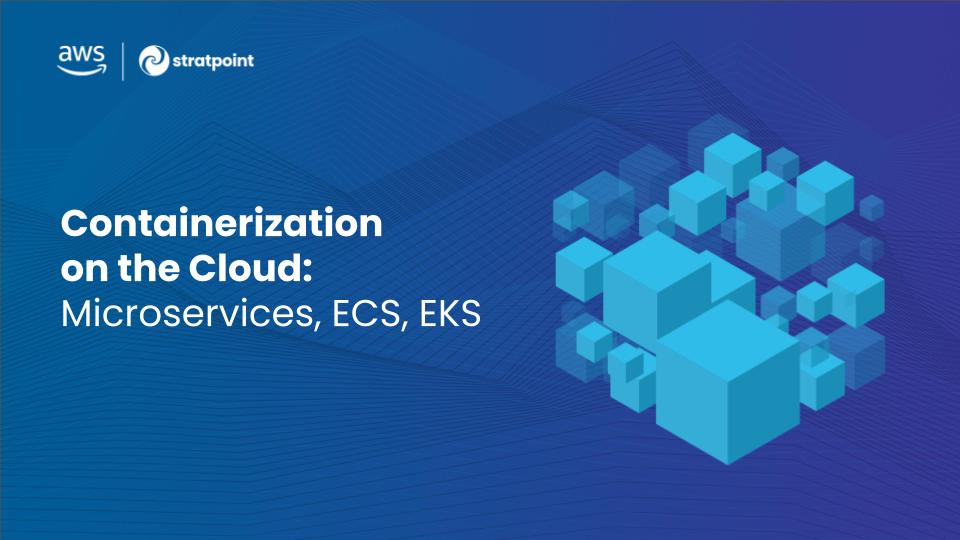Containerization on the Cloud
Microservices, ECS, EKS

A container is a unit of software that bundles up code and all its dependencies into a single package, so that applications can run quickly and reliably from one computing environment to another and developers can build and deploy modern applications with ease. Many customers today choose to run their containers on AWS for security, reliability, and scalability to avoid challenges that come with managing a monolithic architecture, such as limited reuse, scaling quickly, and achieving operational agility. Companies using containers are able to build secure applications, go to market faster, and innovate at an exponential rate because of the microservices approach. Building using a microservices environment can help your team release applications quickly, streamline feedback, iterate faster on ideas, and speed up time-to-market.
Topics
- Moving to AWS
- Computing in modern applications
- ECS vs EKS
- Fargate vs Lambda
- What is a Service Mesh?
- Future of Containers
Speakers
 |
Romar CablaoCloud Engineer, Stratpoint Technologies |
Romar helps teams deliver and implement containerized applications on Kubernetes, hosted in Amazon EKS, ECS, and other container orchestration platforms. Specializing in serverless and containerized applications, he leverages AWS services as an AWS Certified Developer and Certified Kubernetes Administrator.
 |
Damselle AcostaSolutions Architect, Amazon Web Services |
Damselle guides AWS customers in their cloud journey. She is a certified professional DevOps Engineer and Solutions Architect. With almost a decade of experience under her belt, she is adept in Release Management, Continuous Integration & Delivery, and building Microservices Applications.